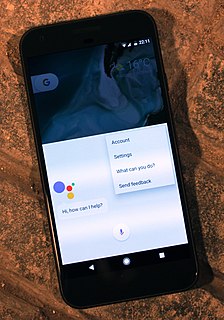Amazon China, formerly known as Joyo.com is an online shopping website. Joyo.com was founded in early 2000 by Chinese entrepreneur, Lei Jun in Beijing, China. The company primarily sold books and other media goods, shipping to customers nationwide. Joyo.com was renamed to “Amazon China” when sold to Amazon Inc. in 2004 for US$75 Million. Amazon China closed its domestic business in China in June 2019, offering only products from sellers located overseas

Alibaba Group Holding Limited, also known as Alibaba Group and as Alibaba.com, is a Chinese multinational technology company specializing in e-commerce, retail, Internet, and technology. Founded on 28 June 1999, in Hangzhou, Zhejiang, the company provides consumer-to-consumer (C2C), business-to-consumer (B2C), and business-to-business (B2B) sales services via web portals, as well as electronic payment services, shopping search engines and cloud computing services. It owns and operates a diverse portfolio of companies around the world in numerous business sectors.

Jack Ma, or Ma Yun, is a Chinese business magnate, investor and philanthropist. He is the cofounder and former executive chairman of Alibaba Group, a multinational technology conglomerate. Ma is a strong proponent of an open and market-driven economy.

Taobao is a Chinese online shopping website, headquartered in Hangzhou, and owned by Alibaba. It is ranked as eighth most visited website according to Alexa Website ranking. Taobao.com was registered on April 21st, 2003 by Alibaba Cloud Computing (Beijing) Co., Ltd.

The Singles' Day or Double 11, originally called Bachelors' Day, is a Chinese unofficial holiday and shopping season that celebrates people who are not in relationships. The date, 11 November (11/11), was chosen because the numeral 1 resembles a bare stick, which is Chinese Internet slang for an unmarried man who does not add 'branches' to the family tree. The four '1's also abstractly refer to the demographic group of single people. Paradoxically, the holiday has become a popular date on which to celebrate relationships: more than 4,000 couples got married in Beijing on this date in 2011, far greater than the daily average of 700 marriages.

An intelligent virtual assistant (IVA) or intelligent personal assistant (IPA) is a software agent that can perform tasks or services for an individual based on commands or questions. Sometimes the term "chatbot" is used to refer to virtual assistants generally or specifically accessed by online chat. In some cases, online chat programs are exclusively for entertainment purposes. Some virtual assistants are able to interpret human speech and respond via synthesized voices. Users can ask their assistants questions, control home automation devices and media playback via voice, and manage other basic tasks such as email, to-do lists, and calendars with verbal (spoken?) commands. A similar concept, however with differences, lays under the dialogue systems.
Tmall.com, formerly Taobao Mall, is a Chinese-language website for business-to-consumer (B2C) online retail, spun off from Taobao, operated in China by Alibaba Group. It is a platform for local Chinese and international businesses to sell brand name goods to consumers in Greater China. It has over 500 million monthly active users, as of February 2018.
Amazon Echo is a brand of smart speakers developed by Amazon. Echo devices connect to the voice-controlled intelligent personal assistant service Alexa, which will respond when you say the name "Alexa". Users may change this wake word to "Amazon", "Echo" or "Computer". The features of the device include: voice interaction, music playback, making to-do lists, setting alarms, streaming podcasts, and playing audiobooks, in addition to providing weather, traffic and other real-time information. It can also control several smart devices, acting as a home automation hub. The smart speaker needs to use Wi-Fi to connect to Internet, there is no Ethernet port.

Google Nest, previously named Google Home, is a line of smart speakers developed by Google under the Google Nest brand. The devices enable users to speak voice commands to interact with services through Google Assistant, the company's virtual assistant. Both in-house and third-party services are integrated, allowing users to listen to music, control playback of videos or photos, or receive news updates entirely by voice. Google Nest devices also have integrated support for home automation, letting users control smart home appliances with their voice command. The first device, Google Home, was released in the United States in November 2016; subsequent product releases occurred globally from 2017–2019.

Google Assistant is an artificial intelligence–powered virtual assistant developed by Google that is primarily available on mobile and smart home devices. Unlike the company's previous virtual assistant, Google Now, the Google Assistant can engage in two-way conversations.
Amazon Alexa, also known simply as Alexa, is a virtual assistant AI technology developed by Amazon, first used in the Amazon Echo smart speakers developed by Amazon Lab126. It is capable of voice interaction, music playback, making to-do lists, setting alarms, streaming podcasts, playing audiobooks, and providing weather, traffic, sports, and other real-time information, such as news. Alexa can also control several smart devices using itself as a home automation system. Users are able to extend the Alexa capabilities by installing "skills" such as weather programs and audio features.
A smart speaker is a type of speaker and voice command device with an integrated virtual assistant that offers interactive actions and hands-free activation with the help of one "hot word". Some smart speakers can also act as a smart device that utilizes Wi-Fi, Bluetooth and other protocol standards to extend usage beyond audio playback, such as to control home automation devices. This can include, but is not limited to, features such as compatibility across a number of services and platforms, peer-to-peer connection through mesh networking, virtual assistants, and others. Each can have its own designated interface and features in-house, usually launched or controlled via application or home automation software. Some smart speakers also include a screen to show the user a visual response.
Mobvoi Information Technology Company Limited is a technological company headquartered in Beijing, China that sells and develops consumer electronics and Chinese voice recognition, natural language processing, and vertical search technology in-house.

Amazon Echo Show is a smart speaker that is part of the Amazon Echo line of products. Similarly to other devices in the family, it is designed around Amazon's virtual assistant Alexa, but additionally features a 7-inch touchscreen display that can be used to display visual information to accompany its responses, as well as play video and conduct video calls with other Echo Show users. The video call feature was later expanded to include all Skype users.

HomePod is a smart speaker developed by Apple Inc. The HomePod is designed to work with the Apple Music subscription service. It is sold alongside the smaller and lower-priced HomePod Mini.
Raven is a brand of smart speakers, developed by Chinese web services company Baidu. The devices connect to the voice-controlled intelligent personal assistant service DuerOS. The products are a result of Baidu's acquisition of Raven Tech in February 2017. The Raven H went on sale in December 2017, the first of three planned products under the brand.

Invoke is a smart speaker developed by Harman Kardon and powered by Microsoft's intelligent personal assistant, Cortana. Voice interaction with Cortana provides features such as setting alarms, facts, searches, weather, news, traffic, flights, and other real-time information. Additionally, the speaker's Cortana integration with one's Microsoft Account enables calendars, reminders, commutes, to-do lists, and home automation features, among others.
DingDong is a line of smart speakers created by Chinese company LingLong. The metal A1 was released in 2016, followed by the release of the cheaper A3 and Q1 the following year. The A1 has a height of 9.5 inches and has a square base which transitions to a cylinder at the top. The devices are capable of reading the news, music streaming, weather updates, and online shopping. Versions are available that speak either Mandarin or Cantonese.
AliGenie is a China-based open-platform intelligent personal assistant launched and developed by Alibaba Group, currently used in the Tmall Genie smart speaker. The platform was introduced in 2017, along with the Tmall Genie X1, at Alibaba's 2017 Computing Conference in Hangzhou.

SenseTime is currently the world's most valuable artificial intelligence (AI) company. It is established in Hong Kong with additional offices across China, Singapore, Japan, Abu Dhabi and the United States. The company has a portfolio of 700 clients and partners, including the Massachusetts Institute of Technology (MIT), Qualcomm, Honda, Alibaba, Weibo, and more. It was the world's first Artificial intelligence unicorn and is valued at over $7.7 billion.










